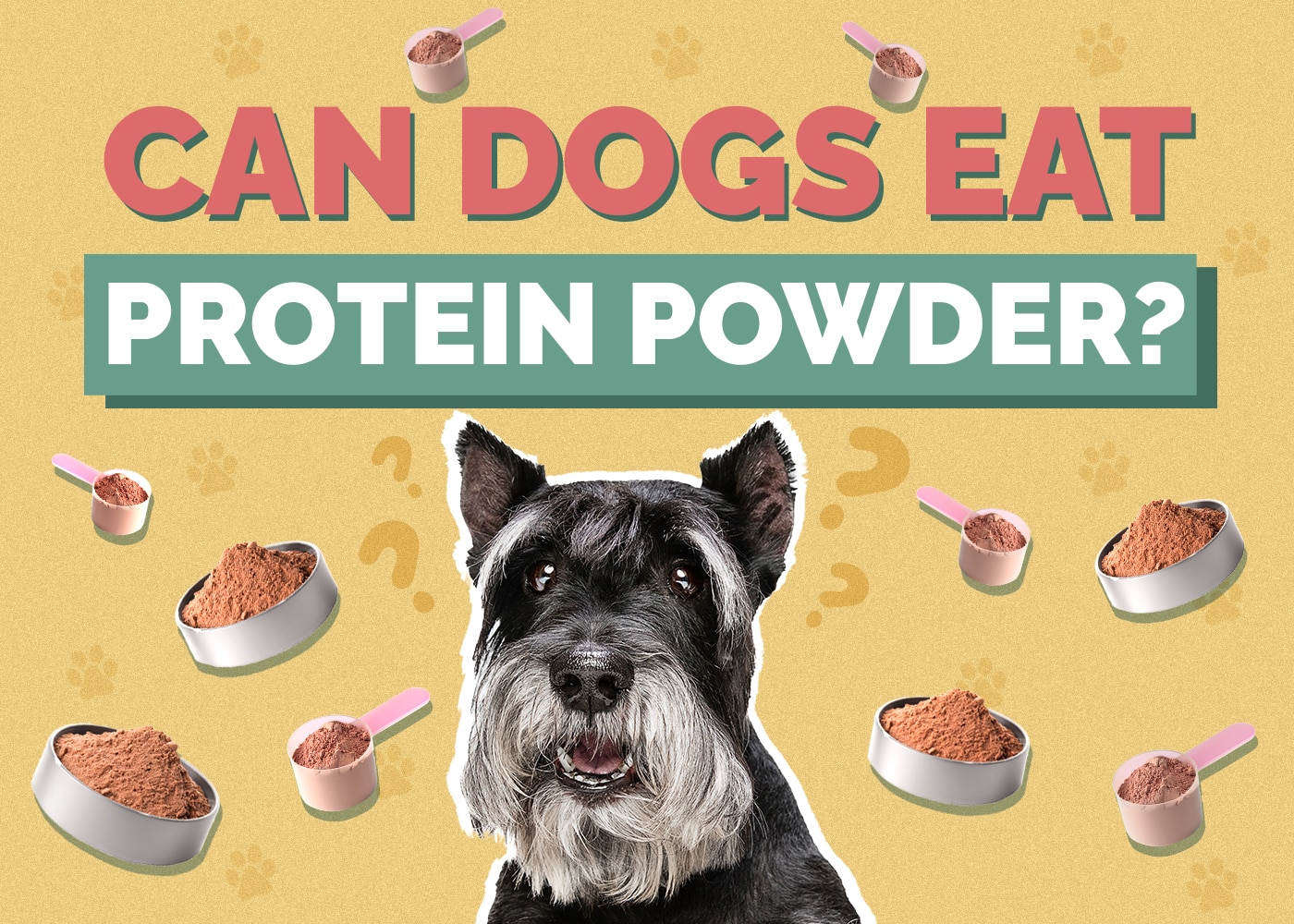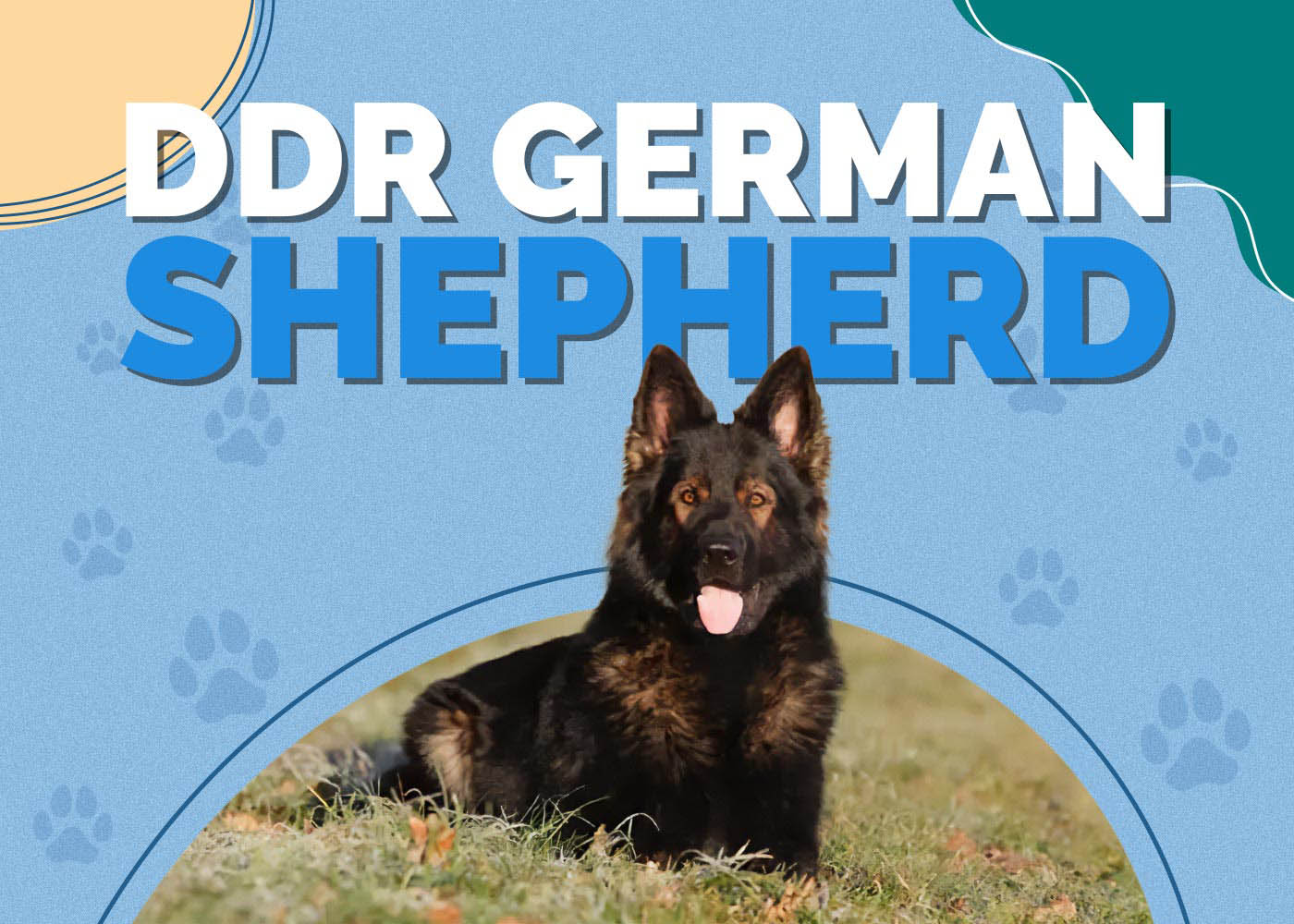Can Dogs Eat Protein Powder? Vet-Approved Facts & Risks
Updated on

Click to Skip Ahead
All responsible dog parents strive to provide their dogs with the best possible life, which also includes providing them with high-quality nutrition. As humans are known for taking various supplements to enhance their diet, many wonder if doing the same thing is also beneficial for our furry companions, raising the question: Can dogs eat protein powder?
In short, yes, dogs can safely eat protein powder in most cases, but that doesn’t mean they should, especially not human protein powder.
In this article, we go over dogs eating protein powder, if such behavior is safe, the possible problems, and more!
What is Protein Powder?
Protein powder, as the name says, is a powder made out of protein, usually from plants, milk, or eggs. Depending on the manufacturer, these products can also contain other ingredients, such as artificial flavors, sugar, minerals, and vitamins. The main reason that people use protein powder and similar supplements is to promote muscle growth and build strength.

Can Dogs Eat Protein Powder? Is Protein Powder Safe for Dogs?
If you’re someone who consumes protein powder, you may be wondering if your dog can eat it too. While dogs can safely eat canine protein powder, they should never consume your protein powder. This product is strictly designed for humans and their bodies and may be unsafe for dogs and other animals.
Human protein powder often contains artificial flavors and ingredients like xylitol, which could potentially be harmful to your dog and even cause poisoning. Xylitol is toxic to dogs and causes low blood sugar and potentially liver failure. Besides xylitol, other ingredients could cause digestive upset, complete with vomiting and diarrhea, or it could lead to an overdose of protein, which can also cause digestive upset. Therefore, don’t offer your protein powder to your dog, and ensure that you keep it out of your dog’s reach to prevent accidents and mishaps.
What Would Happen If Your Dog Ate Human Protein Powder?
Eating human protein powder could be unsafe for dogs, so you should not offer this human supplement to your dog. But what would happen if your dog accidentally ate human protein powder?
In most cases, if your dog ate a small amount of human protein powder, nothing bad should happen. Still, you should monitor your canine for possible signs of gastrointestinal distress or stomach upset.
However, if your dog ate a large amount of human protein powder, immediately visit your veterinarian to prevent further health problems.

Is There a Specialized Protein for Dogs?
The pet industry has grown over the last few years, with numerous new products coming out all the time. One such product is a specialized whey protein for dogs. This is supposed to help dogs by increasing their daily protein intake so they can build muscle, recover from injury, and promote weight loss.
Protein powder that has been designed for canines is safe for dogs to eat and can be beneficial for your furry friend. However, protein powder is meant to be a supplement rather than a diet necessity, so you should speak with your veterinarian before adding it to your dog’s diet. They will perform the necessary check-ups and determine if your dog requires diet supplementation or if such an addition would be unnecessary.
Final Thoughts
Dogs can eat canine protein powder, but they should never eat protein powder designed for humans. The specialized protein powders designed for dogs don’t contain the same ingredients as human formulations that could jeopardize a canine’s health.
Still, even dog-appropriate protein shouldn’t be given to your dog lightly. This is a dietary supplement, so it’s best to discuss the decision with your veterinarian before including it in your dog’s diet.











